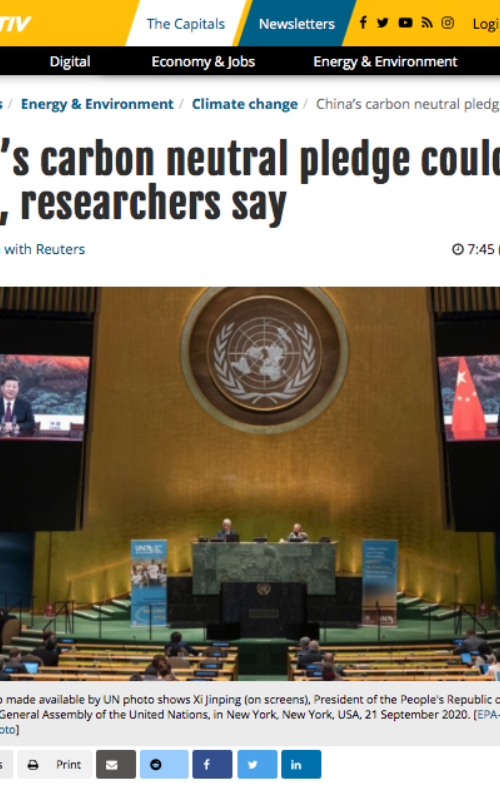Media coverage
Share

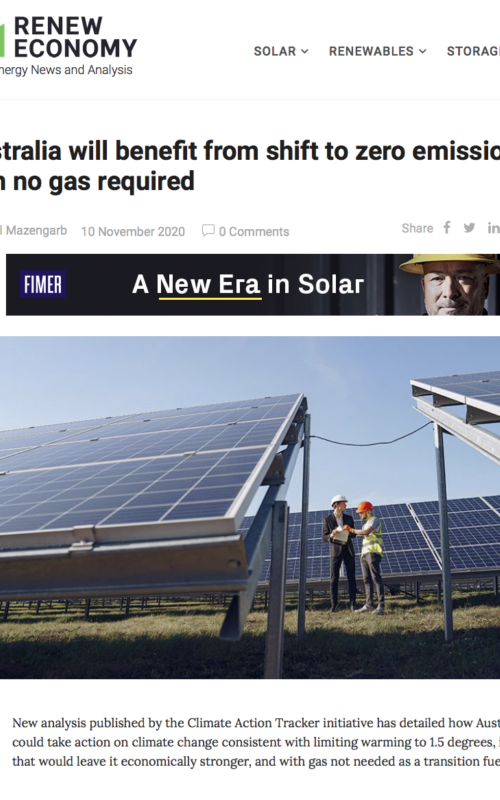
RenewEconomy
New analysis published by the Climate Action Tracker initiative has detailed how Australia could take action on climate change consistent with limiting warming to 1.5 degrees, in a way that would leave it economically stronger, and with gas not needed as a transition fuel. “We show how this is feasible. But it needs real climate policy across all sectors of the economy. An important first step to achieving this is a planned and managed phase out of coal from power generation by 2030” - Bill Hare, CEO of Climate Analytics.
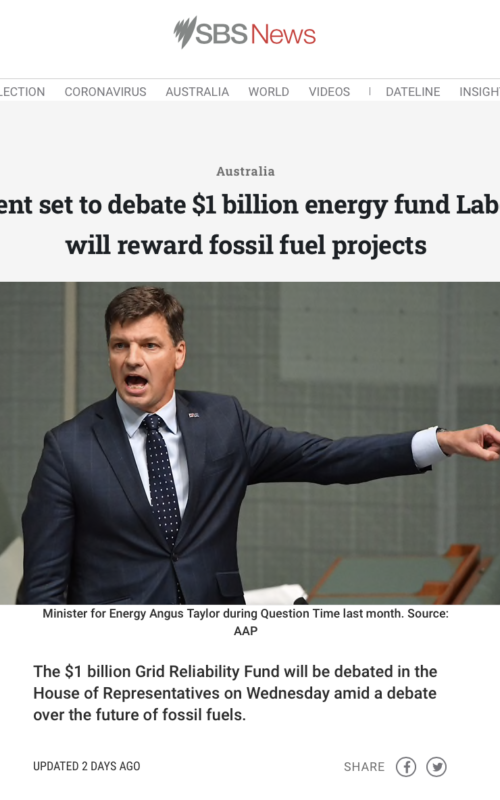
Australian Associated Press
The $1 billion Grid Reliability Fund will be debated in the House of Representatives on Wednesday amid a debate over the future of fossil fuels.Labor and environmental groups have argued the laws are flawed as funding could flow through to gas and coal projects. The Climate Action Tracker report by international climate science and policy institute Climate Analytics says that coal-fired power can be phased out by 2030 in a planned and regulated process to enable a just transition - using renewables and advanced storage - without gas.
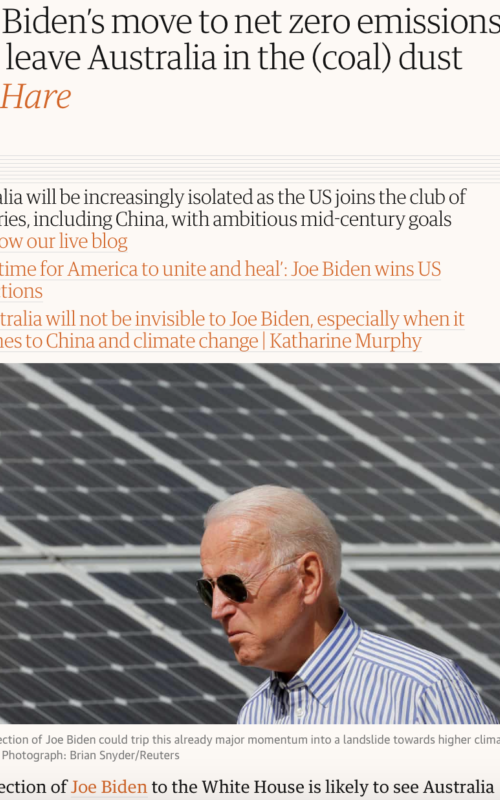
The Guardian
The election of Joe Biden to the White House is likely to see Australia increasingly isolated as the world heads to net zero emissions, with quite fundamental implications for our economy.
Australia needs a forward-looking strategy aimed at taking advantage of its massive natural advantages in renewable energy and the resources essential for the low and zero carbon transition, and one that provides for a just transition for the communities and workforces affected by the rapid reduction in the markets that they have hitherto dependent upon. There is no time to be lost dithering, denying and obfuscating - op-ed by Climate Analytics CEO, Bill Hare.
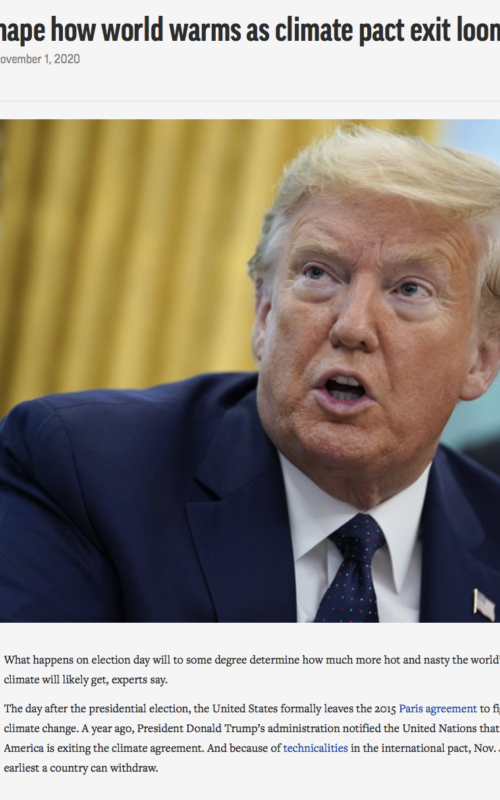
Associated Press
What happens on US election day will to some degree determine how much more hot and nasty the world’s climate will likely get, experts say. According to the Climate Action Tracker, Biden's climate plan could reduce global temperature increase by about 0.1°C.
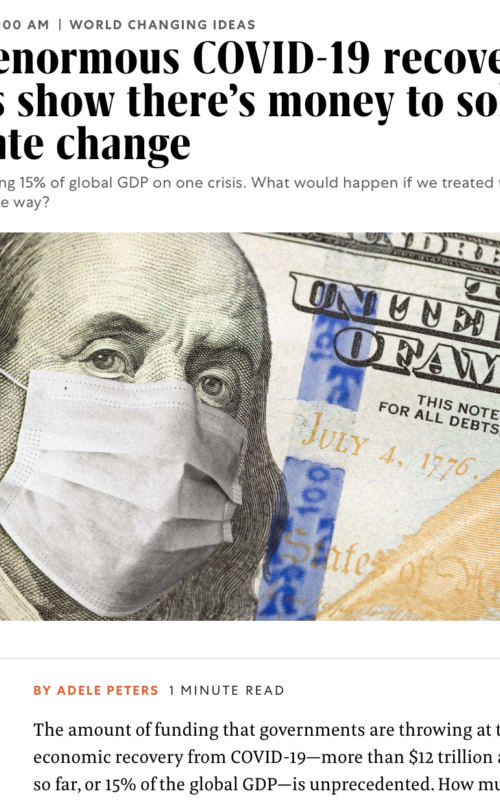
Fast Company
We’re spending 15% of global GDP on one crisis. What would happen if we treated the climate crisis the same way? “One of the messages of this is that tackling climate change is not that expensive, which is contrary to the narrative that we often hear—that this is a crazy, expensive mess” - Marina Andrijevic, first author of a new study published in Science.
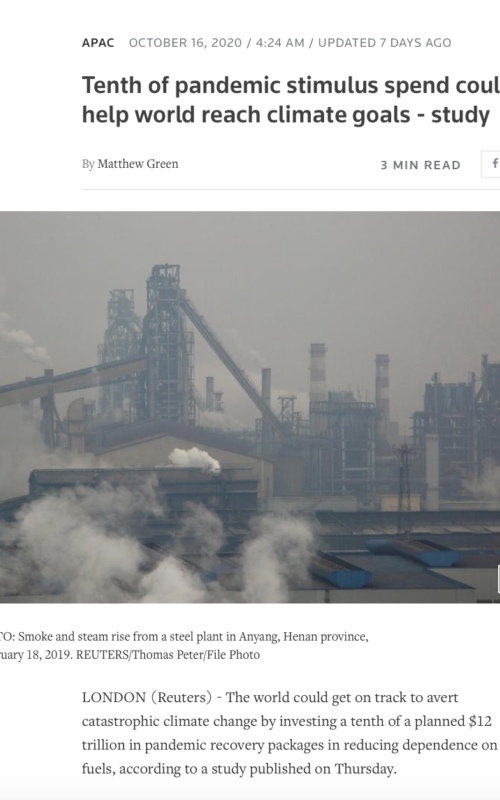
Reuters
The world could get on track to avert catastrophic climate change by investing a tenth of a planned $12 trillion in pandemic recovery packages in reducing dependence on fossil fuels, according to a study published on Thursday. The world could start to bring the Paris Agreement 1.5°C temperature target within reach if governments used 10% of the planned stimulus to back climate-friendly projects such as renewable energy or energy efficiency every year for the next five years, according to the paper, published in the journal Science.
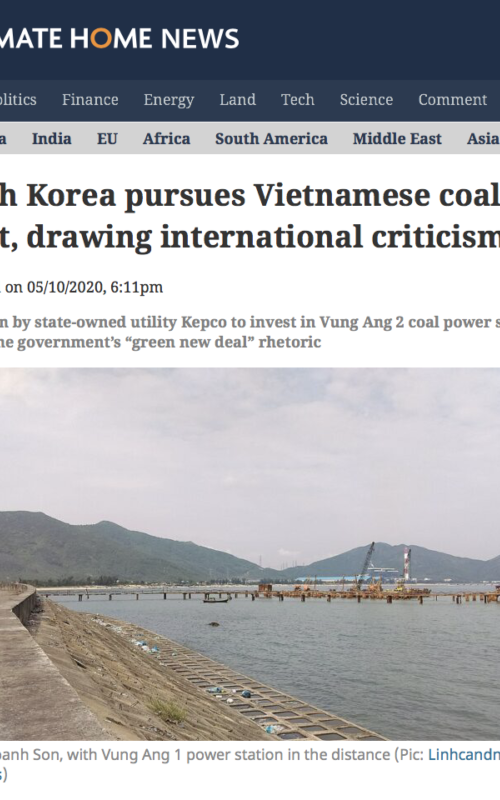
Climate Home News
A South Korean majority state-owned utility has approved investment in a coal power station project in Vietnam, undermining the government’s “green new deal” rhetoric. Climate Analytics chief executive Bill Hare said: “Vietnam is in the process of gradually moving away from coal and learning how it can take advantage of its renewable resources. The Korean government should not be discouraging that. It should be helping to accelerate that.”
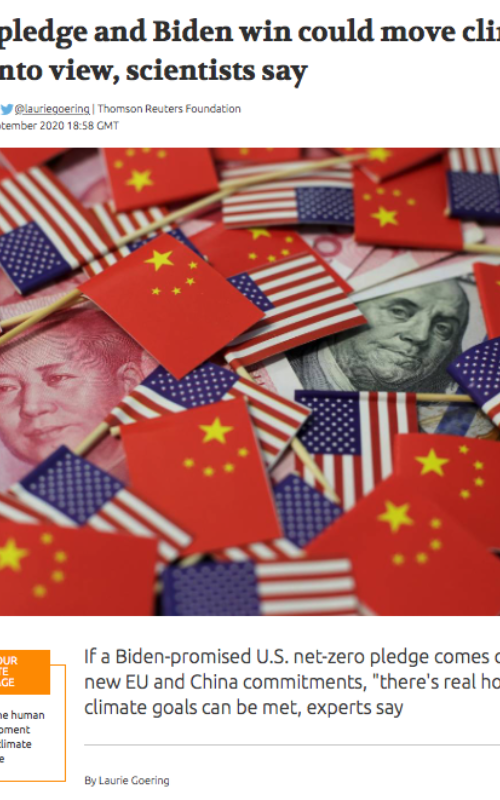
Thomson Reuters Foundation
If a Biden-promised U.S. net-zero pledge comes on top of new EU and China commitments, "there's real hope" climate goals can be met, experts say
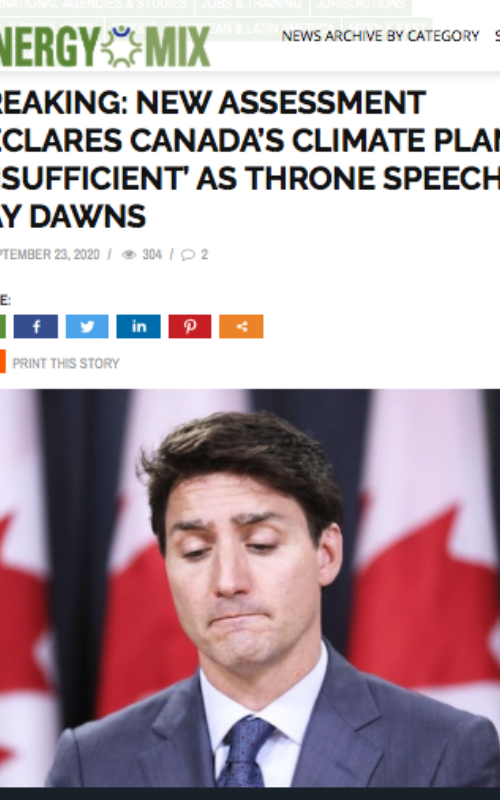
The Energy Mix
With the Trudeau government just hours away from tabling its long-awaited Speech from the Throne, the international Climate Action Tracker is branding the country’s carbon reduction efforts “insufficient” and consistent with a 3.0°C world, with “little support” for green recovery measures to date.
